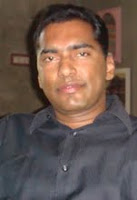Cross-posted from
The Real World.
Are'nt we done with this yet??
Apparently not. The generic UNSC
resolution 1887 (
click here if the previous link does not open) about nuclear disarmament and non-proliferation (press statement including discussions
here) has set-off yet more paranoid
worrying in New Delhi that India will be targeted. Only the
Indian Express seems to have taken a more sober line.
As if it needed reiteration, the MEA, MoS Tharoor and even PM Manmohan Singh had to step-up to state India's position on the NPT for the umpteenth time and reassure the TV pundits that the UNSC resolution was not directed at India and that the US was not backing out on the nuclear deal (further reiterated by Clinton).
That the UNSC resolution would get tied up with the nuclear deal is even more surprising. To reiterate what I have said before, the US-India nuclear deal is really a deal between India and the international community, not just the US. And the benefits are already visible: here, here, here, here, here, here and here, with more to come. Even if the US were to balk at this stage, it matters little because the gate is already open for nuclear commerce with the rest of the world.
A lot of recent debate in the US about the paranoid style of American politics; it may be time consider seriously hypotheses about the paranoid style of Indian politics . . .
Click Here to Read More..
























